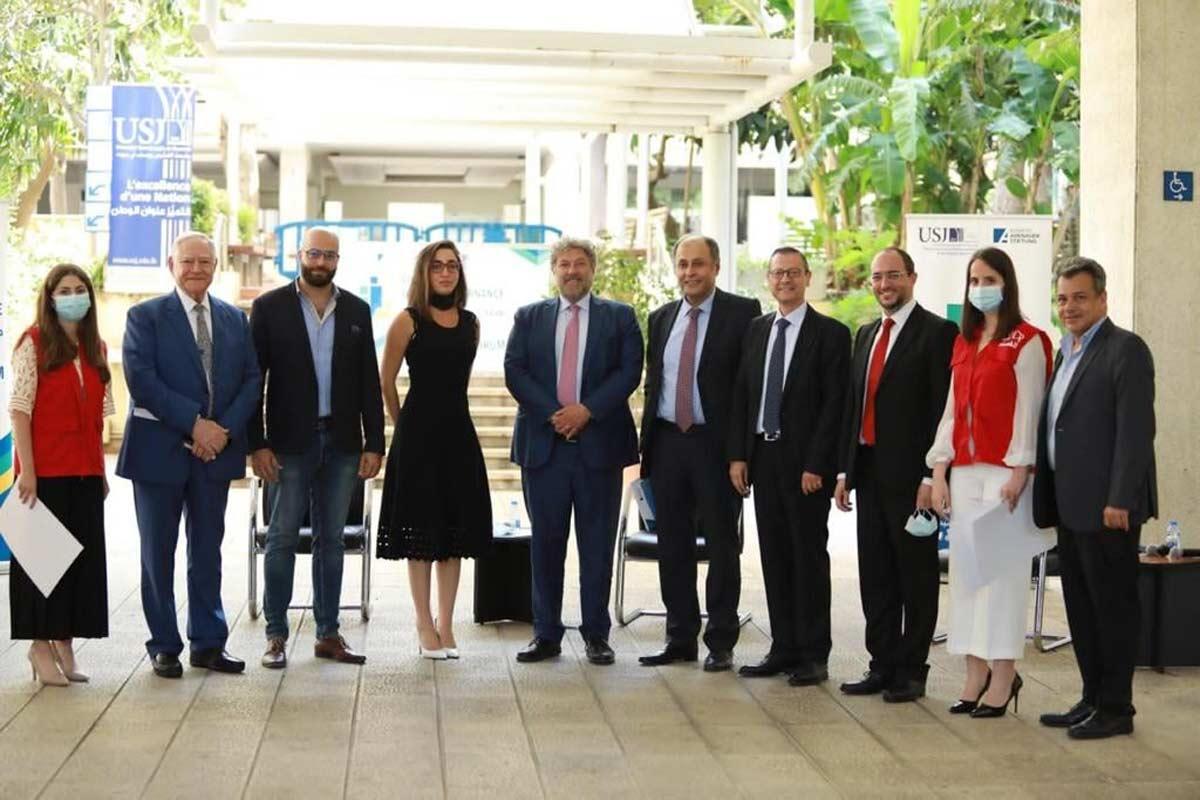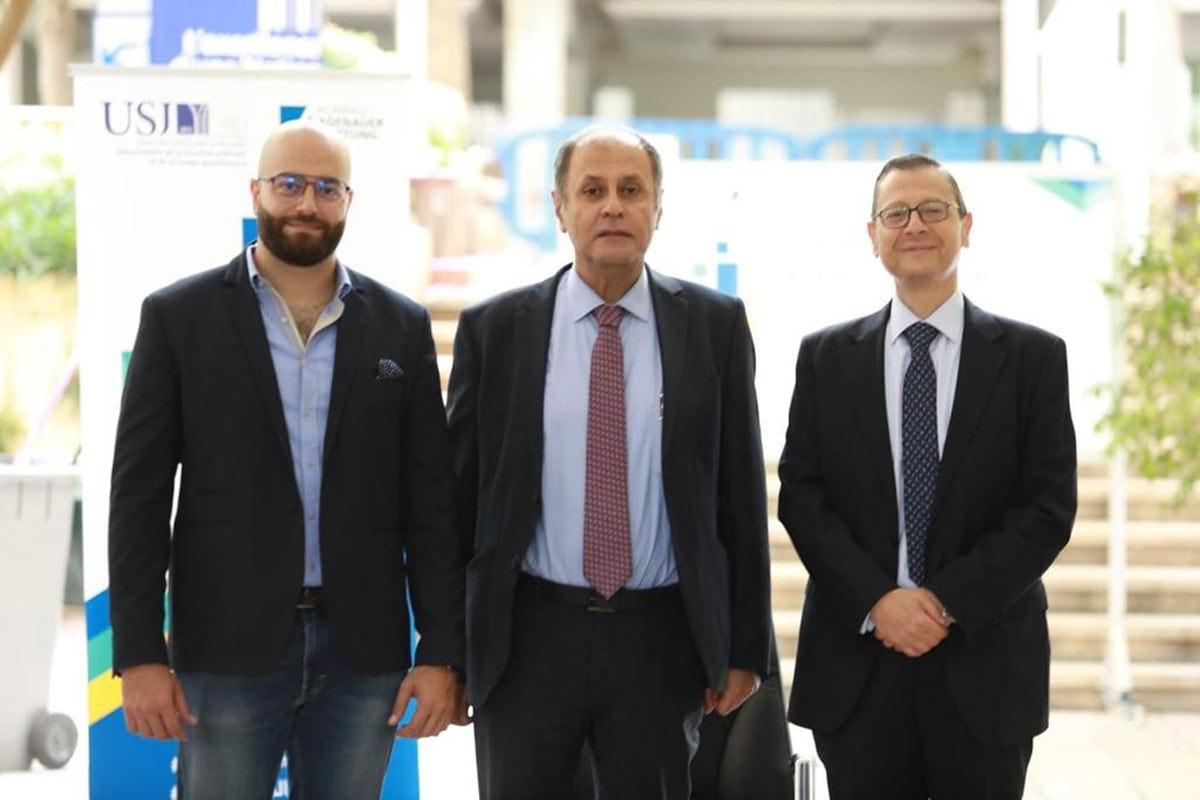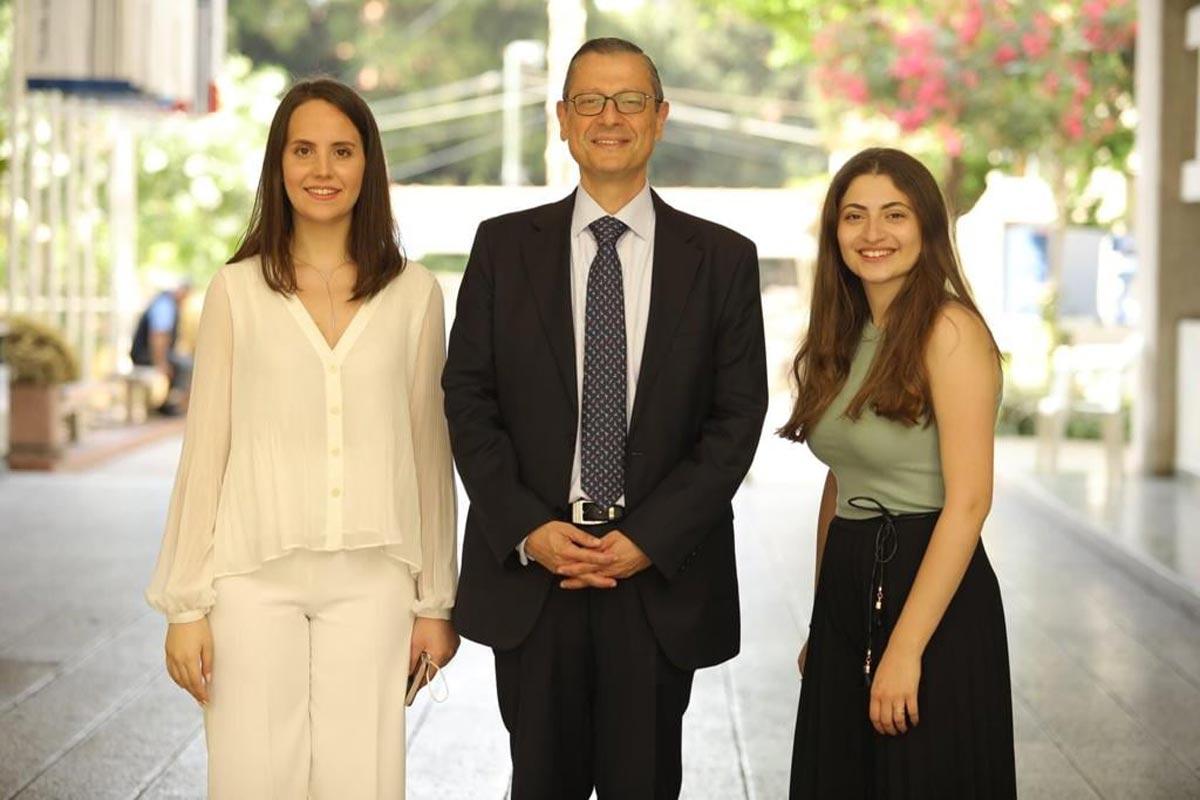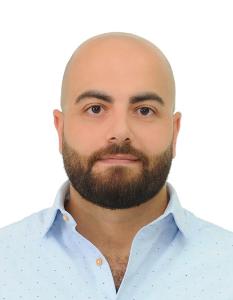The Good Governance Forum - Anti-Corruption Laws
Within the framework of achieving good governance, strengthening governance and combating corruption in the public and private sectors, the “Observatory of Public Function and Good Governance” at Saint Joseph University, in cooperation with the Konrad-Adenauer-Stiftung (KAS), organized a virtual seminar entitled “Fighting Corruption: What Prevents the Application of Laws”, on Friday, May 21, 2021, at the campus of the Faculty of Social Sciences on Huvelin Street.
The seminar was attended by the former Minister of Justice Pr. Ibrahim Najjar, the former MP Nehmat Frem, the head of the Central Inspection Judge Georges Attieh, lawyer Carine Tohme, a member of the administrative board of the Lebanese Association for Taxpayers’ Rights, the coordinator of the ACT project Ahmad Al Assi for the “We are all Against Corruption” campaign, in addition to the project manager at the Konrad Adenauer Foundation, Hamad Elias.
The beginning was with a welcome speech by the Director of the “Observatory of Public Function and Good Governance,” Pr. Pascal Monin, who pointed out that everyone knows the magnitude of corruption in Lebanon, but does the political will to fight corruption and follow the path of reform exist among the people of power and the people of politics? Dr. Monin considered that the state and its institutions today are in a state of disintegration and dissolution, and the institutions established by President Fouad Chehab are suffering, and the journey of restoring the spirit of the state begins with the fight against corruption.
Former Justice Minister Ibrahim Najjar considered that there is no “fight against corruption” in the absence of a state of law, and the rule of law means that the law must be respected in collecting taxes, creating an armed force, correct management and applying laws as required, stressing that “the fight against corruption is not only with slogans and speeches.”
Najjar added: “There is no longer a culture of law in Lebanon, “The smart one takes advantage of his intelligence and the hand that you cannot overcome, accept it and pray that it will be broken,” all these sayings and their application led to the absence of a culture of law in Lebanon, and we no longer have anyone applying the rule of law because Lebanon is disjointed today, and all sectors collapsed,” pointing out that “corruption is rampant in Lebanon, and the rule of good law does not exist in Lebanon today.”
The former justice minister continued: “The state must be strong, capable and fair, meaning that according to the law the state must collect taxes and through them, the public facility is secured, which results in armed forces and security forces that protect the country when there is a ‘responsible mentality’ we have a state.”
Najjar presented his experience during his tenure as Minister of Justice, noting that he tried to apply the law and did not respond to any political reference, but in every step he decided to take, he faced great political pressure.
He said: “As Minister of Justice, I transferred 18 files of corrupt judges to the judicial inspection file, and only one judge was dismissed because political mediation did all that could be done to protect these judges, not to mention the huge millions of dollars offered several times in exchange for accepting to ‘pass’ corruption files that I rejected, of course.”
In turn, the former MP Nehmat Frem pointed out that he ran to the prosecution to change the reality that we have reached today, stressing that he was never surprised by the reality, and added: “I saw that the main problem is that the current belief of political affairs is that state institutions are legitimized for captivity and can be exploited after entering the state, and this process began in 1991 when a law was passed that allows any partisan to assume administrative responsibility in the Lebanese state.”
“Who speaks today on behalf of Lebanon?” he asked. He added that “the political system considers the state to be a spoil of war, and Lebanon can only be advanced by liberating the state from corruption.”
He added: “We have a year to fight for the survival of Lebanon, and the vision is clear by rebuilding the state on productivity and effectiveness based on the art of building institutions,” revealing that he is in the process of forming a political front across sects and regions to contest the upcoming parliamentary elections and bring about great change.
He continued: “We were late to understand corruption in Lebanon, as there is a very smart system that attracts and steals money, by attracting Lebanese tourists and expatriates with their money and stealing it in Lebanon by offering them illusions.”
Frem warned of the current situation, pointing out that “we are facing the demise of Lebanon as we know it and there is an intention to destroy everything that Lebanon has possessed for many years, Lebanon's schools, universities, culture and everything we know about it is currently being destroyed, and today we are facing a real moment, either going to rebuild Lebanon by entering strongly into the Parliament or allowing the system to continue to destroy Lebanon.”
Regarding the cost of corruption, Frem indicated that we must collect all the money that entered Lebanon since 1991 and subtract it from what is left of it today.
The head of the Central Inspection, Judge Georges Attieh, considered that “in Lebanon we have the best laws, but their application was not correct and this application was not respected,” and added: “The Lebanese administration works under the supervision of regulatory bodies that have marginalized their work by not developing them for thirty years, the owners have existed since 1959, only 30% of it remains today to monitor the public administration, and this is impossible to apply appropriately.”
Attia continued: “The administrative path is not respected in the Lebanese state, administrative transactions must be directed from the bottom of the administrative ladder to the highest references, and this is the basis of work and laws set according to the administrative hierarchy, but to shorten the work in the minister’s office and his advisers is corruption.”
Attia pointed out that the decisions of the Central Inspection Board are not respected and there are dozens of decisions that have not been respected for twenty years and more.
Both Ahmad Al Assi and lawyer Carine Tohme explained the anti-corruption and transparency enhancement project in Lebanon with a project funded by the European Union and Expertise France, and the activities addressed by the campaign, which aims to reach the largest possible segment of citizens and promote a culture of anti-corruption, and to help them understand the definition of corruption, and how to confront it, through several training programs and conferences that affect school and university students.
It is noteworthy that the main objective of launching the “Good Governance Forum” is to create a motivational framework to build more applicable public policies, taking into account the standards of good governance, and providing a means of pressure in the hands of the Lebanese citizen by introducing him to his rights and duties, and also aims to provide available information on the work of the state, its departments and institutions, and to identify matters and aspects that can be improved in public administration.
This forum is a link between decision-makers and influencers on the one hand, and public opinion on the other. It also seeks to open up towards the private sector in the future, based on the firm conviction of the need to achieve governance standards in this sector, in addition to civil society institutions and in the legal and human rights fields and all community issues.
Disediakan oleh
Foundation Office Lebanon
Tentang seri ini
Konrad-Adenauer-Stiftung dengan karya-karya dan pusat-pusat pendidikannya serta kantor-kantornya di luar negeri menyelenggarakan setiap tahun beribu-ribu buah acara tentang topik yang beraneka-ragam. Di dalam situs www.kas.de, kami memberitakan secara aktuil dan eksklusif bagi Anda tentang kongres, peristiwa, dan simposium dll. yang terpilih. Di samping ringkasan isi, Anda di situ memperoleh juga bahan tambahan seperti gambar, naskah ceramah, serta rekaman video dan audio.


















